As a Registered Dietitian, I love that there are so many ways to empower people to achieve their health goals. As an Intuitive Eating Dietitian, my approach is a bit different than you might expect.
For those who are wondering what Intuitive Eating is exactly, and how an Intuitive Eating Dietitian might help you, this is the post for you.
First things first: What is Intuitive Eating?
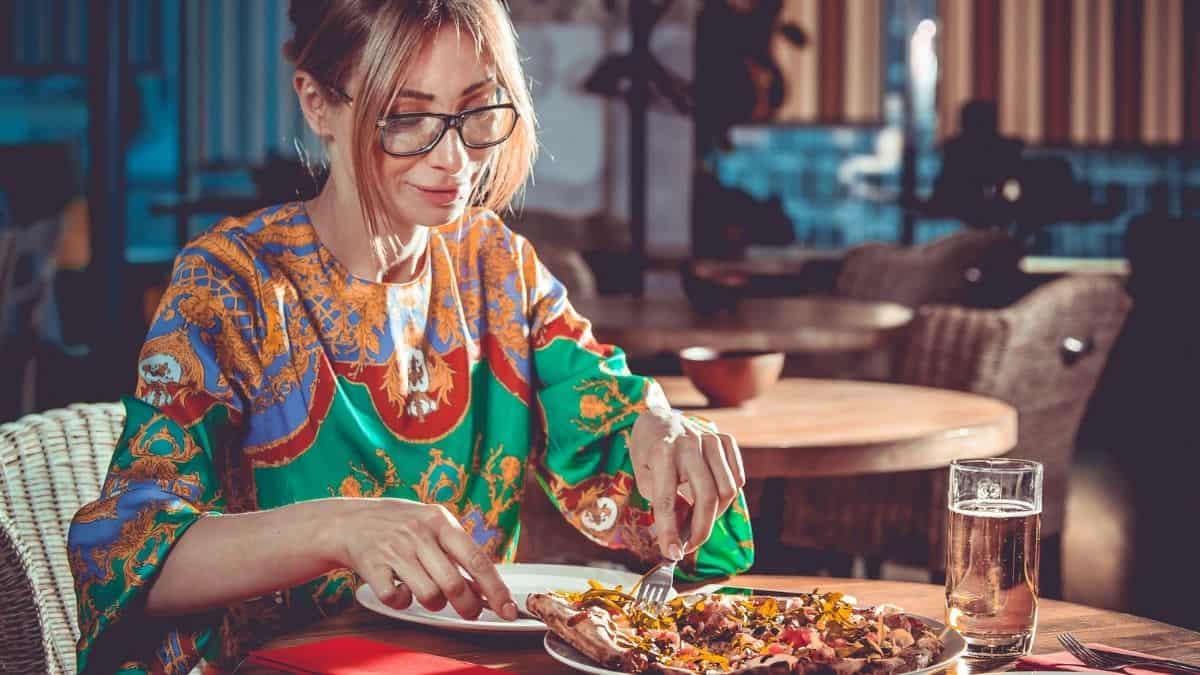
What is Intuitive Eating?
When you think of working with a dietitian, what do you picture? Calorie counting, diets and weight loss? If that is where your mind goes first, trust me, you’re not alone.
The traditional ways in which dietitians are trained focus on weight loss as a means to promote health. Traditional dietitians’ work leans into diet culture because that is how we’re trained.
Diet culture – the idea that you should manipulate your body into being smaller, that smaller = healthier and that smaller = happier – is intimately woven throughout our society.
Just think about how the new year kicks off…with a weight loss goal!
And how about vacation prep…does it include a diet?
Getting ready to attend a wedding or host your own fancy pants event...does that also involve a diet?
Intuitive Eating is different.
Intuitive Eating is one of those things that sounds about a bajillion times simpler than it is in reality. It is based on the idea that we deserve to trust our bodies and that whenever we try to manipulate or sabotage our bodies, our physical and mental health suffers.
Intuitive Eating is a weight-neutral approach to health. This means that we are focusing on healthy behavior goals, not a number on the scale (more on weight and IE in the FAQ section of this post – keep on reading, Gorgeous).
There are 10 Principles of Intuitive Eating: let’s go over those briefly because these are the foundations of how I practice as an Intuitive Eating Dietitian!
10 Principles of Intuitive Eating
There are ten principles of Intuitive Eating and I’ve gotta say, these principles have been transformative in my own health and wellness journey as I recovered from chronic dieting, food rules and binge eating (more on that in a bit). But in order to understand further what an Intuitive Eating Dietitian is and how we help, it is important to understand just a bit more about what Intuitive Eating is.
And although this is a list of one through ten, however this is a flexible list meaning that everyone may have a different starting point depending on their own past with dieting and food rules. You get to choose where to start and what to do next…intuitively (see what I did there??).
- Reject the diet mentality
This step is about taking the focus off of weight loss and kicking it to the curb, as well as getting rid of any diet “tools” such as meal portioning kits, scales, and dieting apps. This is an opportunity to get really darn angry at all of the false hopes and broken promises that diets swindled you with. Because as much as we think the next diet will “work”…. The statistics show it most likely won’t (and will actually contribute to more weight gain).
- Honor your hunger
Honoring your hunger by eating when you’re hungry and stopping when you’re full sounds insanely simple, but I know from my own experiences with binge eating that this really isn’t the case. Especially if you’ve been a chronic dieter. When you’ve worked for years to thwart your hunger cues (“have a glass of water instead” or “don’t eat after 7 pm”) it can take practice to tune back in.
- Make peace with food
Your body? Your rules. And the best rules? None at all, actually!
This step is giving yourself full permission to eat anything (absolutely anything) whenever you want. This step leads to a lot of myths about Intuitive Eating. Don’t worry: we’ll bust those in just a sec. But in the meantime, if ice cream sounds better in the afternoon than an apple, that’s okay! Grab a spoon and dig in. Are they the same nutritionally? No. But this stage helps you remove the moral value from them.
- Challenge the food police
On a related note, challenging the food police is about saying a firm NO to any decisions that are based on a food being “better” or “healthier” than another; food is just food. Again, no. These foods aren’t the same nutritionally (that comes in in a second!) but they’re not “better” or “worse” (thinking this way makes you want the “bad” foods even more and feel guilty when you eat them) You have no need to base your own morality or worth on what you eat, or when.
- Discover the satisfaction factor
Food can be so much more than just fuel if we would just give it a chance. Food should be enjoyable! When you find what foods you like and ones that really “hit the spot” you will actually obsess over food less and be more likely to listen to your hunger and fullness cues.
Food is also a medium to celebrate holidays, such as my grandmother’s chocolate chip cookies that I make these days in her memory (but used to avoid at family gatherings for fear of eating “unhealthy” foods…what a waste of a moment with my precious grandmother).
Food also offers us comfort as well as a way to connect with our family and cultural history. Food is an avenue of exploration as we travel and a way to knock the pants off of (I mean, socks off of) a cute date. If we welcome food as a means of joy and pleasure into our lives, we are far happier for it.
As an intuitive eater you know how to include this satisfaction in a way that still allows your body (and mind!) to feel good.
- Feel your fullness
Just as important as honoring your hunger is tuning into your body as you reach fullness. This is harder to do when you’ve been dieting but feels more natural with practice. This is your permission slip to exit the “clean plate club” if that is the kind of household you grew up in.
- Cope with your emotions with kindness
I’d say that as a society, we’re still learning how to process and work through emotions instead of trying to avoid and deny them. It is human nature to try to avoid discomfort and big emotions can sure as heck be uncomfortable.
When we acknowledge that emotions are a completely normal part of being a human being and approach them with curiosity and kindness, we are better for it. Numbing feelings solely with food, social media scrolling, booze, or anything else is just a temporary break from the feelings, not a solution. (P.S. It is perfectly okay to take a break from big feelings, even with emotional eating, it just isn’t the long-term solution.)
- Respect your body
Diet culture would have you believe that your body is less than awesome. And you know what I have to say to that? Screw diet culture. You, Gorgeous, are fabulous, just as you are. Right this very minute.
You have a genetic blueprint that has directions for the color of your eyes and hair, your height, skin color, and yes, even your weight. We don’t tend to have a morality attachment to our eye color or shoe size…why do we attach so many harmful meanings to our weight? Well, diet culture, of course.
Respecting your body is not the same as loving your body 100% or even 100% of the time, but it is about appreciating what it can offer you and stop giving it such a hard time for not meeting arbitrary and constantly changing cultural expectations – she deserves a break! I mean, think of all the amazing things your body does for you to allow you to live this life! Amazing!
- Movement – feel the difference
When you’re doing exercise, are you thinking about the calories you’re burning or the food that you’ve “earned?” Or, are you enjoying the feeling of letting stress go, the strength of your muscles, and the wind on your face as you power down the trail?
What movement do you actually enjoy? If you love HIIT group classes – go get ‘em, tiger. But if what you actually love is Zumba and bike rides, there is no morality about that. Do what you love and honor your body with joyful movement.
- Honor your health – gentle nutrition
Gentle nutrition is a common thing that is overlooked by folks who just don’t quite get it. Nutrition is important, I am a dietitian after all, but as an Intuitive Eating Dietitian, I know now that nutrition is just one piece of the puzzle.
With Intuitive Eating, you are more than welcome to eat all the dang cookies that you’d like, without a heaping side of guilt. But we also know that our physical comfort and energy level is going to be a tad different (probs feel better!) if we have cookies and other foods, including fruits, veggies, and something with protein. Gentle nutrition honors your health, without smothering the joy of eating.
Now that we’ve covered the ten principles of Intuitive Eating, let’s bust a few myths, shall we?
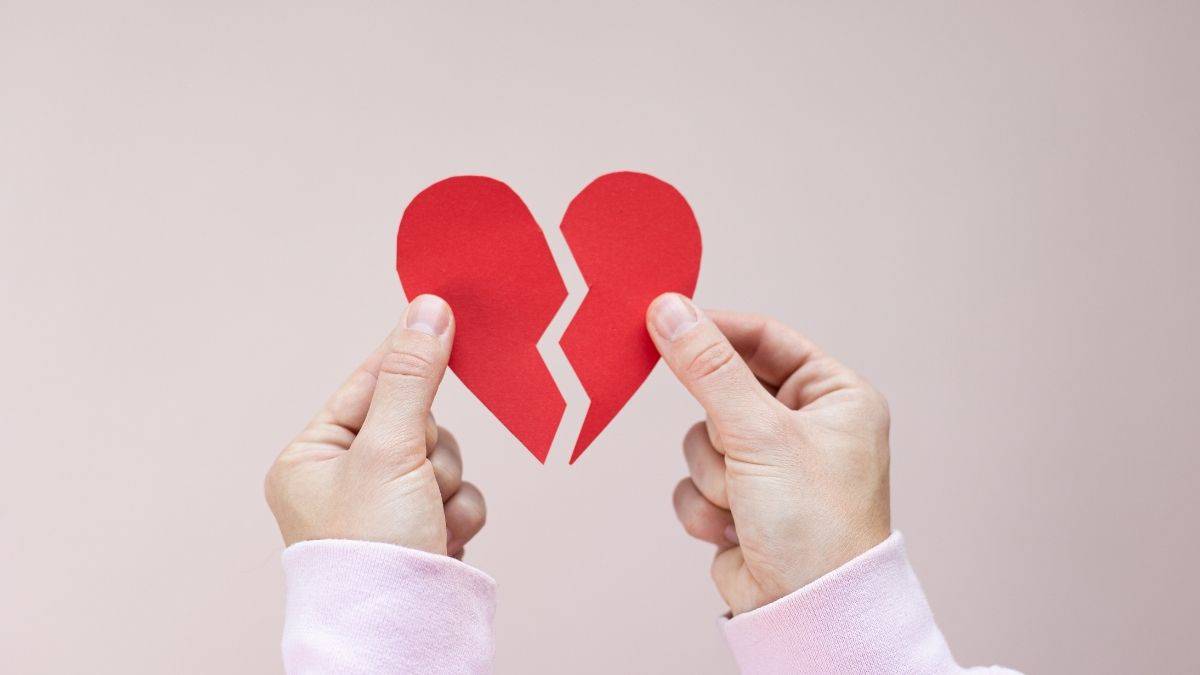
Myths about Intuitive Eating
As with anything that is gaining traction, sometimes the messages get a bit jumbled. Just like playing telephone as a kid at birthday parties.
As an Intuitive Eating Dietitian, I’ve heard a LOT of BS myths. I’m excited to share these myths with you…and also bust them!
Intuitive Eating is all about junk food
This myth trips up a lot of folks. I get it. We are so used to thinking about food as “good” and “bad” that anything outside of that mental framework feels unfamiliar…and even wrong.
But with Intuitive Eating, anything goes. That means no food rules. All food is just food, it isn’t a moral choice what you’re eating. If chips sound good – great – enjoy them. If a crunchy salad sounds enjoyable – enjoy that!
As you give your body permission to clue you in on what sounds best, you’ll naturally reach an equilibrium with foods that nourish your body and spirit. And although this can sound a bit fluffy, it is backed by sound research.
Would you rather we talk about science? Well buckle up, buttercup: a recent study of college students found that those who followed an Intuitive Eating mindset had more nutritious eating habits. Woot!
I love science – let’s talk about this a bit more.
Intuitive Eating is not based on science
False!
This myth really gets me riled up. I am a student of science! Studying to be a dietitian involves a bachelor’s degree that is essentially pre-med: no fluff. And before I launched my own business, I worked for four years in a clinical setting helping people with inborn errors of metabolism. Ya know, genetics and such, also not fluff.
So to have someone assume that I’m promoting soft science or fluffy stuff gets me just a little steamed.
Here’s the cool thing about science: the more research that we do, the better we are able to do high-quality research. Nutrition is a younger science than you might guess, but a lot has changed along the way. So that keeps researchers on their toes on how best to measure and promote health.
With research studies about weight loss, most researchers came to the conclusion that the health benefits were due to the weight loss. What we can understand better now, with a bit of a different perspective, is that the benefits we can measure are actually due to the healthy behavior changes – not the weight itself.
For example, if someone added a walk after work, a few additional servings of fruits and veggies to their daily eating routine, and did their best to get the heck to bed a bit sooner, you’d say that they’re healthier…right? I would: those are very healthy habits to build in.
But what makes me a bit different as an Intuitive Eating Dietitian is that I’d say that this example person is healthier no matter what their weight is or if it even changed. Plenty of dietitians would make the goal be about the number on the scale and Intuitive Eating dietitians don’t.
If you’d like to dive deeper into Intuitive Eating, walk on over to your local library and pick up any of these books: The 5 Best Intuitive Eating Books To Read ASAP.
And if you’d like to get in touch with your inner scientist – go, go, gadget research study – check out this round-up of peer-reviewed journal articles about Intuitive Eating.
Intuitive Eating promotes weight loss
Intuitive Eating is a weight-neutral belief system. This means that a number on the scale is never the goal. I know: this is so very difficult to let go of because we’ve been focusing on that number for years. But as we chatted through in the above section, healthy behaviors are what promote health, not a specific weight.
It is a really common and totally understandable question: can I still lose weight with Intuitive Eating? We simply don’t know what your body’s weight is destined to be. Your body has a natural “set point” weight at which you can maintain it easily and you feel physically good.
For a bit more about IE and weight loss, check out this post: Will Intuitive Eating Help Me Lose Weight?
You can’t practice Intuitive Eating if you have a health condition or food allergy
Another myth busted: as an Intuitive Eating Dietitian, I can help you to make peace with food while avoiding foods that you truly need to avoid.
I covered this topic in a full post, right here: How To Eat Intuitively With Dietary Restrictions
Okay, now that we’ve done some serious myth-busting, you may be wondering one basic thing about Intuitive Eating: is it healthy? Great question – let’s dive in.

Is Intuitive Eating Healthy?
Yes.
So much of our mindset, even my training as a dietitian, is about weight loss.
But as we talked about in the research discussion a bit earlier, we now better understand that the benefits in many of the “weight loss” studies are actually due to changes in behavior, not changes in weight.
I’m a dietitian. I am always going to promote eating fruits and vegetables. But as an Intuitive Eating Dietitian, I have a wider lens when it comes to health: vitamins and minerals, and fiber are absolutely important, but so too is having a positive relationship with your own body and eating and actually having joy around it.
When you eat intuitively, your mind and body are going to feel the best.
(And the research is on my side. So there.)
How did you become an Intuitive Eating Dietitian?
TW: discussion of binge eating
My journey towards becoming an Intuitive Eating Dietitian happened through surviving one of the hardest times in my life: in college and beyond, when my self-esteem and relationship with food crumbled and I began dieting and binge eating.
I actually had a pretty great relationship with eating and my body until college. But once I started school, was living on my own, and I was very challenged by our intense curriculum. My life felt really out of control and I was intensely overwhelmed. I didn’t have the skills to move through those big feelings and was grasping at straws to feel any semblance of being back in control.
I kept grasping until I began tracking my eating, my weight, and my calories. I became obsessed with thinness and was feeding myself significantly less than I actually needed. It was like a never ending merry-go-round that was NOT enjoyable. I just kept trying to control my food, exercise and body more and more strictly hoping that eventually, it would make me feel better. Happier. In control.
My what I call “ultra-careful” eating didn’t make me feel better, happier, or more in control. Quite the opposite actually. I was depressed, stressed and anxious. So? I said enough was enough and let go of the food rules. *Wahoo!* But…because I was starving myself, I began to binge eat. Hard.
As a broke college student, I didn’t have too much jingle in the bank account, but whatever I did have went directly to the campus CVS where I bought tubs of ice cream, boxes of cereal, and containers of cookies (all of the “bad” foods in my mind) and scarfed them down. Not like a bowl or two of cereal…the whole dang box.
And I felt like total garbage. Each time this happened, my self-esteem plummeted and I was contending with a massive belly ache. Of course, it hurts to eat that far beyond comfort.
To combat the binge, I would over-exercise. But this just fueled the cycle, because I was restricting my food again and burning so much energy with my frantic workouts. This was not joyful movement, it was punishment for “bad behavior.”
This cycle felt endless and I was more out of control than ever. My friends and family were noticing, too.
I finally reached a point of exhaustion and frustration and wanted to break free, but I needed help. I wanted to eat “normally” but literally didn’t know how.
I tried to find food freedom but didn’t have the support that I needed. I started working with a registered dietitian, and she wanted to help me, but it is pretty difficult to understand and help with improving someone’s relationship if you haven’t been there yourself.
I’ve come so far since then.
What is your life like now, with Intuitive Eating?
My life is completely different as an Intuitive Eating Dietitian, both in the work that I do as well as my relationship with myself and with others, including my romantic partner.
With food freedom, I am able to focus on making memories when my husband and I go on a date, not stressing about the calories in my meal or if I “deserve” a cocktail or dessert.
I am able to have a carton of ice cream in my freezer without anxiety, and more importantly, without binging. I enjoy a bowl when I want it and don’t even think about it most of the time (really!).
I have developed a wide range of tools for emotional self-care that enables me to work through and manage stress, instead of depending on food as the only coping mechanism. (PS: eating food for comfort is 100% allowed, but in addition, I can teach you how to add a few more tools to the feel-good toolbox).
I’ve learned to exercise in a way that feels joyful, not like punishment for my “bad food choices.” And honestly? I’m stronger than ever! Crazy what actually nourishing your body does!
I’ve reached my happy weight; the weight that feels effortless to maintain.
Through the transformation offered by Intuitive Eating, I can now say that my body is stronger. I’m happier. I’m healthier.

Why did you start this business?
I never want another person to feel the depths of hatred that I did for myself when I felt so out of control. My eating was controlling my life.
The truth? I didn’t think that this should be my career…thought it would be too close to home.
I realized how many people were struggling, just like I was.
And it became my mission to help.
And you deserve the same freedom.
What makes your approach as an Intuitive Eating Dietitian Different?
I think one of the biggest things that makes me different is my focus on gentle nutrition and taking it beyond just rebelling against diet culture. Getting out of the grasp of diet culture is a bit like a break-up and moving through the stages of grief. Getting mad at diet culture? Yes! Get mad, write the sassy journal entries and punch the dang pillows. But Gorgeous, keep moving.
Don’t let your actions continue to be in relation to diet culture…you know you’re beyond the grasp of diet culture when you can think about it neutrally. (If thoughts of an ex are still getting you frustrated or hot and bothered, you know that you have some more processing to do, right?)
You deserve to feel good mentally and physically. Remember those cartons of ice cream and cereal that I used to scarf down? I can still remember how awful I felt…not just mentally, but physically, too.
In school, we learn the most about the stats and data about food. Oranges are a good source of vitamin C, beans are a good source of fiber, and so on. This is true, but I now understand that the nutrient stats are just one piece of the puzzle to wellness. Gentle nutrition matters, but it is not the only thing that does. Intrigued? Excellent – check out this post Getting Started With Gentle Nutrition.
Another thing that makes me different as an Intuitive Eating Dietitian is my personal experience with binge eating, weight bias, and doing the very difficult work of letting all of that go.
I’ll never fib and say that moving through the ten principles of Intuitive Eating is a piece of cake – it is honestly really hard – but I will confirm that life with Intuitive Eating is far richer, more enjoyable, and fun.
Looking for an Intuitive Eating dietitian near you?
If you’d like to do some of the deep work of healing your relationship with your body and eating, I would suggest looking for a Certified Intuitive Eating Counselor.
I suggest using the Intuitive Eating directory to find a practitioner near you. This is an especially great fit if you have a diagnosis of an eating disorder or are worried you might.
BTW – I am actually working on this credential, too! I will never stop learning. It is game on for me to learn as much as possible about how to help my SociEATy members achieve food freedom, too.

Can I work with you?
Gorgeous, I’d be honored to be your guide towards achieving food freedom.
In the depth of my binge eating and shame, I felt like I was the only one going through this. You don’t have to feel this way; that is why I created the SociEATy.
Food freedom can never happen overnight, but I promise that with my framework, you’ll get there far sooner than I did. And with a lot less discomfort (mentally & physically!).
And my clients feel the same way. One of my clients even told me that my framework offered in The SociEATy felt really different than just trying to follow IE principles on her own. Without professional guidance from someone who’s been in the same trenches, she felt like trying to follow IE just meant “eat all the things”.
Believe me – I get it – that’s how I felt when I was trying to figure this out on my own, too.
She felt empowered by my methods of breaking down the process into action-oriented steps. You can be next by joining the SociEATy today. Let’s bid a firm farewell to diet culture, together.
Key Take-Aways: Intuitive Eating Dietitian
Thanks for reading. You deserve to partner with an Intuitive Eating Dietitian determined to free you from diet culture once and for all. If you’re ready to start feeling good about your body, your eating, and to feel physically good throughout the day, it is time to kick start your journey towards Food Freedom.
You deserve it.
Whether you struggle with following restrictive food rules or feel totally out of control around food, you’re in the right place. I’ve helped thousands of women learn how to stop dieting & following food rules, learn how to eat intuitively, and find food freedom that feels good.
Are you next? I sure hope so. Join us, right here.

The SociEATy is your Anti-Diet safety net! Diet culture is appealing because of the community, structure, and goals. So it MAKES SENSE that it’s hard to leave behind. I created the SociEATy—the community that actually EATs!—with all the GOOD things dieting has to offer baked in. So you don’t have to free-fall into this new way of life!
XOXO
-Colleen


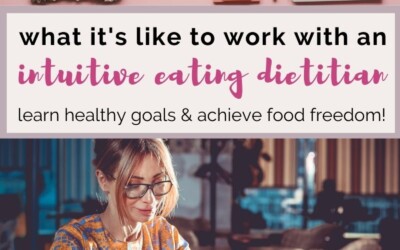
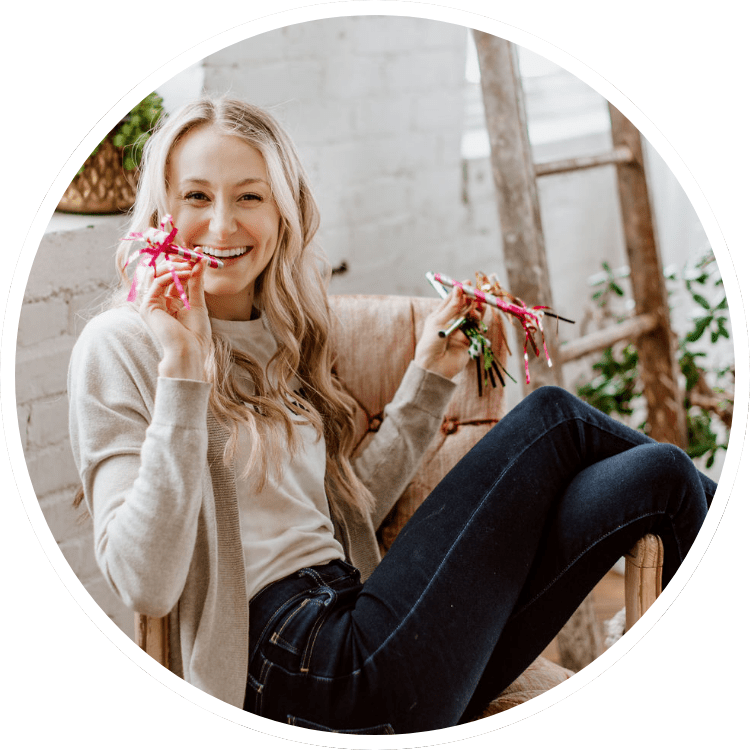

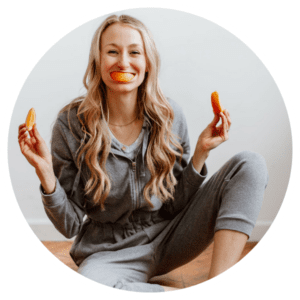
Leave a Reply